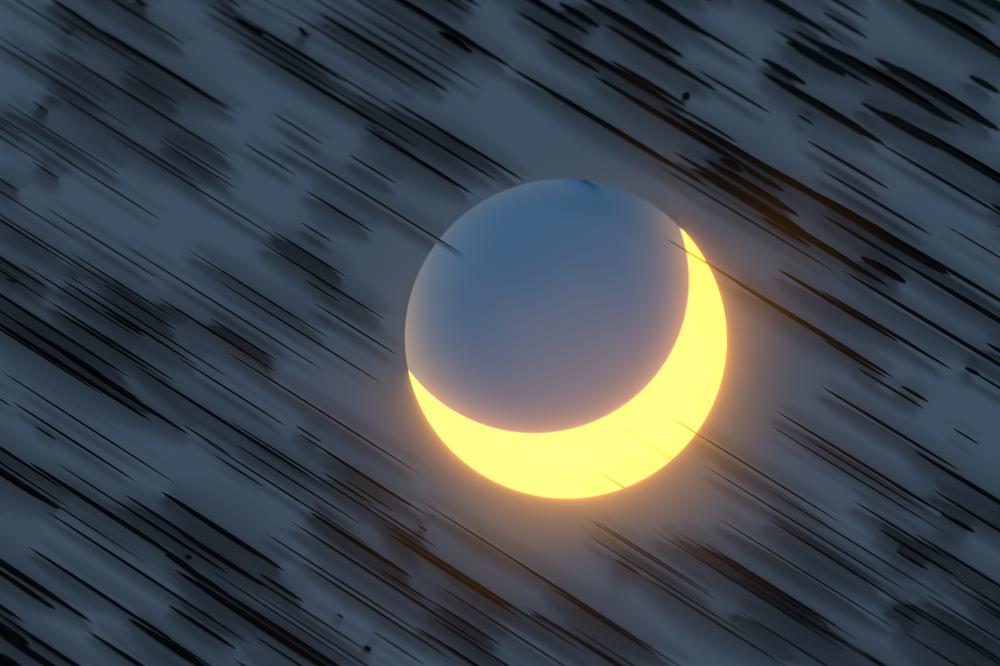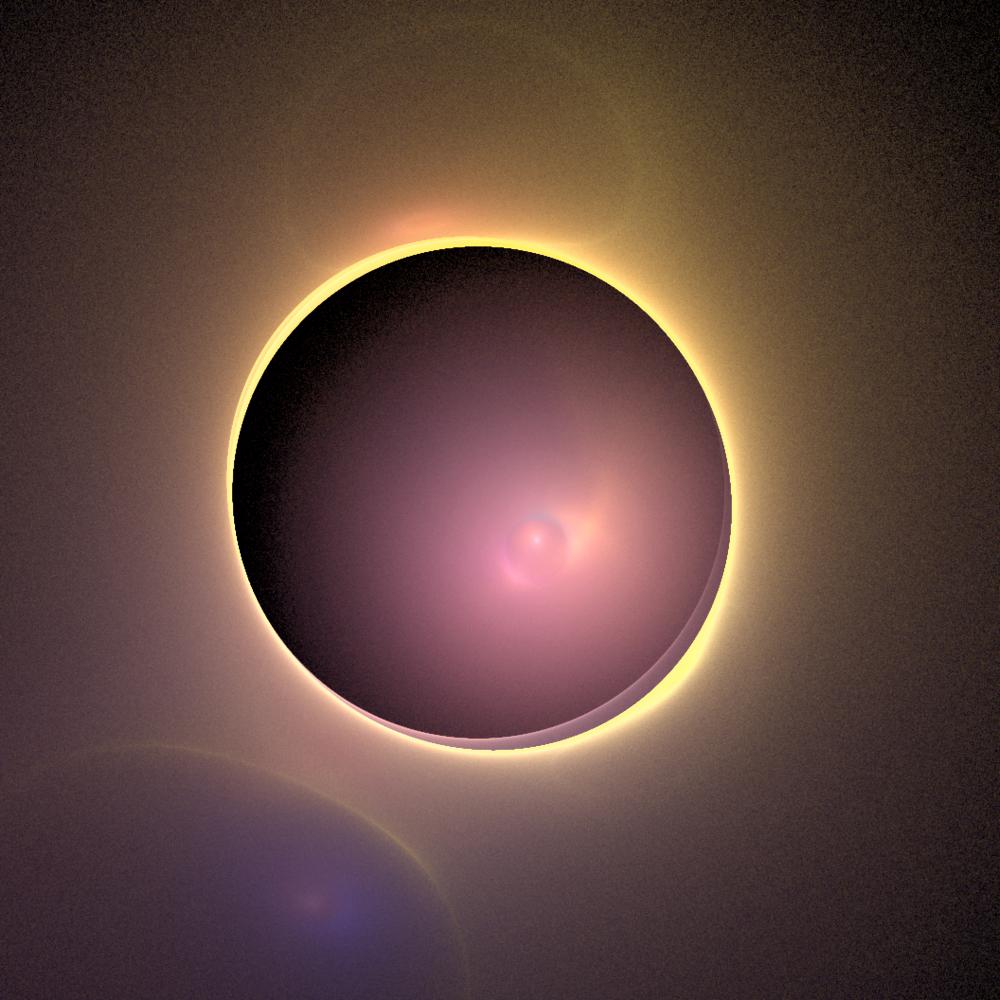
Understanding Solar Eclipse Blindness
During a celestial marvel like a solar eclipse, the excitement and allure can sometimes lead us to overlook the importance of protecting our eyes. Exposure to the sun’s rays during an eclipse, without proper protection, can result in solar eclipse blindness, a temporary or permanent loss of vision known as solar retinopathy. This condition arises when the retina’s delicate tissues are burned, leading to varying degrees of visual impairment.
The Importance of Approved Sunglasses
It’s paramount to use specially designed sunglasses that comply with ISO 12312-2 standards. These glasses are engineered to block out the harmful ultraviolet (UV) and infrared (IR) radiation that can cause serious eye damage. Ensuring your protective eyewear meets these standards is the first step towards safeguarding your vision during solar events.
Risks of Fake or Defective Sunglasses
Unfortunately, the market is flooded with counterfeit sunglasses that claim to offer adequate protection against solar radiation. These fakes, often lacking the necessary filters and certifications, pose a significant risk to your eye health. Wearing these during a solar eclipse can lead to solar retinopathy, as the retina is exposed to intense sunlight without proper protection.
Recognizing Symptoms of Solar Eclipse Blindness
- Blurred or distorted vision
- Loss of central vision
- Changes in how color is perceived
- Light sensitivity
If you notice any of these symptoms after viewing a solar event, even with what you believed were protective sunglasses, it’s crucial to seek medical attention immediately.
Our Commitment to Justice
At our organization, we are dedicated to supporting individuals affected by solar eclipse blindness due to fake or defective sunglasses. Our team collaborates with a reputable law firm, specializing in personal injury and product liability, to ensure those affected receive the compensation they deserve for their suffering and any medical expenses incurred.
Take Action
If you suspect that your vision has been compromised due to inadequate sunglasses, it’s important to act swiftly:
- Consult with an ophthalmologist to assess the extent of the damage.
- Retain your purchase receipt and the sunglasses for proof.
- Contact our team for legal support and guidance.
Protecting Your Vision
Protecting your eyes should always be a priority during solar events. By choosing certified protective eyewear and staying informed about the risks of counterfeit products, you can enjoy these celestial phenomena without compromising your eye health. If you have already suffered from eye damage due to incorrect protection, remember, you are not alone. We are here to help navigate the path to recovery and justice.
Personal Reflection on Solar Eclipse Blindness
I remember the awe and excitement that enveloped me during my first solar eclipse viewing. The world seemed to stand still as the moon obscured the sun, casting a surreal twilight. It was a magical experience, one that I had prepared for by purchasing what I believed were ISO-certified sunglasses. The realization that my vision had been affected afterward was a harrowing experience, leading me on a journey through recovery and advocacy for eye safety. Now, as part of an organization dedicated to helping others in similar situations, I share my story in the hopes of raising awareness about the importance of proper eye protection during such events.
Solar eclipse blindness is preventable with the correct precautions and awareness. By promoting the use of approved sunglasses and educating the public on the dangers of counterfeit products, we can help prevent solar retinopathy and preserve the awe-inspiring experience of solar eclipses for everyone. If you or someone you know has been impacted by fake or defective sunglasses, reach out to us. Together, we can make a difference in protecting our community’s vision and ensuring accountability for those who jeopardize our health with inferior products.

How do you know if a solar eclipse damaged your eyes?
Identifying damage from a solar eclipse involves being vigilant about certain symptoms that may not appear immediately. If you observe symptoms such as blurred or distorted vision, a central black spot in your vision, increased sensitivity to light, or changes in how you perceive colors, you might be experiencing signs of solar retinopathy. It’s a condition where the retina, the part of your eye responsible for vision, gets burned by the sun’s rays. Remember, these symptoms can manifest hours to days after the exposure. If you notice any of these changes, it’s imperative to consult an ophthalmologist as soon as possible for a thorough examination and appropriate treatment. It’s better to err on the side of caution when it comes to your eyesight.
Why do my eyes hurt after the solar eclipse?
Feeling discomfort or pain in your eyes after watching a solar eclipse can be alarming. This sensation often results from looking at the sun without proper eye protection, which can cause inflammation of the cornea (photokeratitis) or damage to the retina (solar retinopathy). The sun emits powerful ultraviolet (UV) rays that can harm our eyes, especially during an eclipse when we’re tempted to stare directly at it. If your eyes hurt after the event, it’s crucial to seek medical attention. An ophthalmologist can assess the extent of your discomfort and provide necessary treatment to prevent further damage. As part of our advocacy, we remind everyone about the significance of using ISO-certified sunglasses for any future solar events to safeguard your vision against harmful radiation.
What are the effects of solar eclipse on humans?
The effects of a solar eclipse on humans can be profound, especially if proper eye protection is not used. Physically, direct exposure to the sun’s rays during an eclipse can lead to solar retinopathy, as discussed. However, the fascination and awe that accompany solar eclipses can also have positive cognitive and emotional effects, sparking interest in astronomy and science. Historically, solar eclipses have been significant cultural events for many civilizations, often interpreted as omens. Today, they bring communities together for educational and observational events. We emphasize the importance of balancing the awe-inspiring experience of witnessing a solar eclipse with the need for protecting our eyes to ensure these moments lead to positive memories rather than permanent damage.
Why is it crucial to use ISO-certified sunglasses during a solar eclipse?
Using ISO-certified sunglasses during a solar eclipse isn’t just a suggestion; it’s a necessity for preventing eye damage. These sunglasses are designed to block out the sun’s harmful ultraviolet and infrared radiation effectively. ISO 12312-2 is a global standard ensuring that sunglasses provide enough protection to look safely at the sun during an eclipse. The certification is your assurance that the glasses have been tested and proven to offer the safety your eyes need against the sun’s damaging rays. Without this protection, staring directly at the sun can lead to temporary or permanent vision loss. Always ensure your eclipse glasses or viewers are genuinely ISO-certified by checking their packaging and verifying the manufacturer’s information before use.
What are the risks associated with wearing fake or counterfeit sunglasses during a solar eclipse?
Wearing fake or counterfeit sunglasses during a solar eclipse poses severe risks to your eye health, primarily because these products lack the necessary protective filters. Counterfeit glasses might not block the harmful ultraviolet (UV) and infrared (IR) rays effectively, allowing intense solar radiation to reach and damage the delicate tissues of the retina. This can rapidly lead to solar retinopathy, causing symptoms like loss of central vision, distorted vision, or even permanent blindness in severe cases. Unfortunately, it can be challenging to distinguish fake glasses from genuine ISO-certified ones just by appearance, which is why purchasing from reputable vendors and verifying the ISO certification is critical. Your eye safety during these celestial events is paramount, and taking shortcuts with unverified products is a risk not worth taking.
How can we safeguard against solar eclipse blindness effectively?
To effectively safeguard against solar eclipse blindness, preparation and education are key. Opt for ISO 12312-2 certified sunglasses designed specifically for viewing solar eclipses. These sunglasses have been rigorously tested to meet international safety standards for direct observation of the sun. It’s also important to educate friends and family about the risks of watching a solar eclipse without adequate eye protection. Awareness campaigns and informative resources play a crucial role in preventing solar retinopathy by highlighting the importance of using certified protection. Lastly, if hosting or participating in a viewing event, ensure that everyone has access to and uses proper solar viewing eyewear. By taking these steps, we can enjoy the awe-inspiring beauty of solar eclipses without compromising our vision.
Resources
- American Academy of Ophthalmology – Solar Eclipse Eye Safety: Learn more about how to protect your eyes during a solar eclipse from this trusted source.
- Centers for Disease Control and Prevention – Eye Safety for Solar Eclipse Viewing: Find information on approved eyewear for solar eclipse viewing to keep your eyes safe.
- National Eye Institute – Solar Eclipse Eye Safety: Discover tips on how to safeguard your vision during solar events and prevent solar retinopathy.
- Prevent Blindness – Solar Eclipse Eye Safety: Access resources and information on protecting your eyes during solar eclipses to avoid vision damage.
San Antonio TX 78205